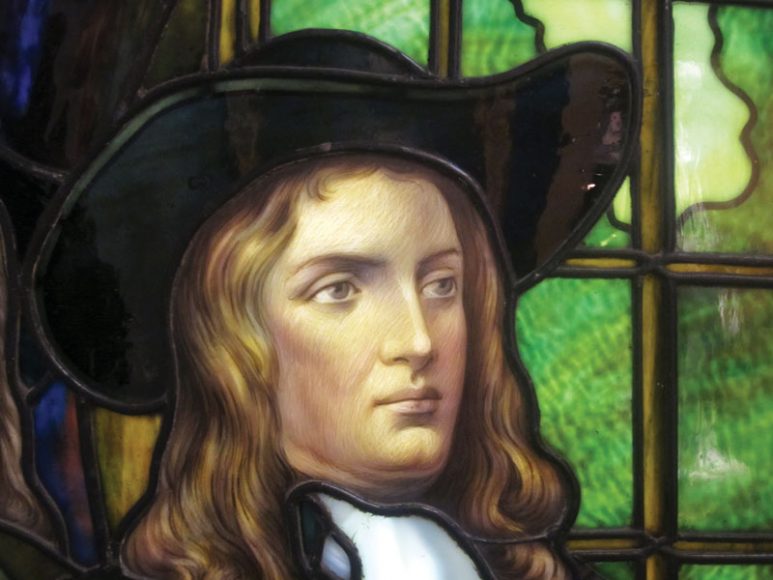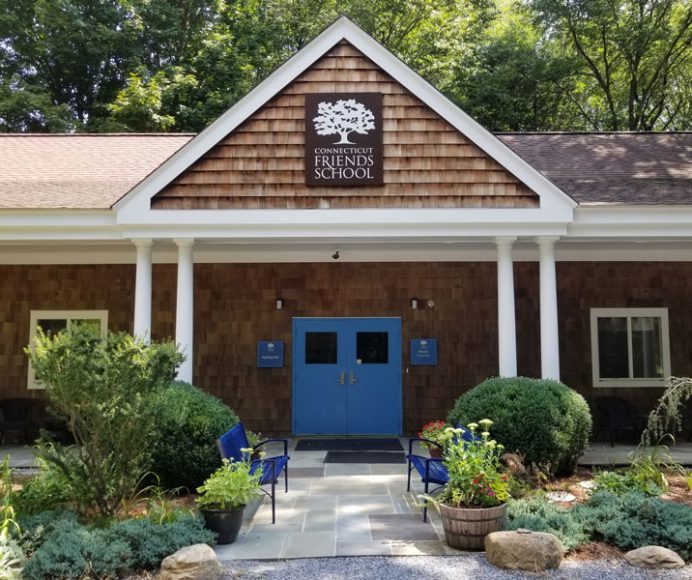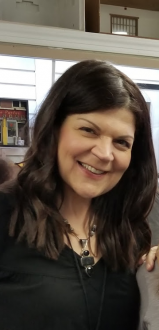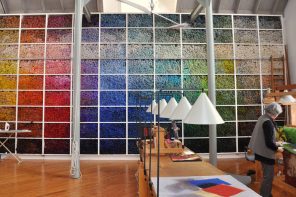On a warm and breezy Sunday morning in late August, I made some new friends, of the Quaker variety. Let me set the stage for you.
I’ve driven up into the hills and woods of Wilton to observe the worship of the Wilton Friends Society. The sounds of nature — chirping birds and humming insects — drift through the open doors and windows of a modest wooden meetinghouse. The peaceful space with Quaker-style benches and plain cushions arranged facing each other is simply adorned with pillows and throws randomly placed throughout the room for the cooler days to come. The furnishings form a circular pattern around a central and simple hearth.
This “meeting” in Wilton, like those of other meetings of worship for “unprogrammed” Quakers, as they refer to their branch of Quakerism, consists of one hour of silent worship. I knew of this format in advance — no deacon, pastor or other officiant, no prayers, no songs — just silence. Now, for those of you who are unfamiliar with these peaceful folks or their doctrine, as I was, there is more meaning to this hour than just silence and observance. The Religious Society of Friends — whose early members included Pennsylvania founder William Penn — believes not in one God, but rather that the divine spirit inhabits everyone. Through a contemplative state, described not as meditation but as letting go of distracting thoughts and external forces, it is possible to be receptive to a thought or message compelling enough to relay to those assembled.
As the hour progresses, attendees become much more self-aware — I know I did — which is one of the goals, as explained to me by Pete McCaughan, the clerk of the Wilton Quaker Meeting. “It’s a method to set all aside, come into your center and an expectant state of worship or receive a message and find the spirit.” Welcoming and hospitable, my new friends host a social hour and reception following announcements, introductions and news. Intentions by members or loved ones of members who may be facing challenges in their lives are spoken, too, and those individuals are then “held in the light” by the meeting.
Afterward, it’s an opportunity to glean more insight and information from Pete and his wife, Renda, the archivist for the meeting, who compiled and wrote a history of the Wilton meeting on the occasion of its 75th anniversary in June of this year. I learn of the commonality among the various meetings — this noun, “meeting,” referring to the members of one worship location in its entirety. Most meetings of the Religious Society of Friends are in the Friends General Conference (FGC), which meets periodically by region and annually for week-long sessions.
Learning more about the Quakers and their commitment to education through the Friends schools’ compelling mission, I can understand why present-day, nontheists may be drawn in. The core beliefs of the religious doctrine correspond to an acronym, SPICES, representing simplicity, peace, integrity, community, equality and stewardship. Pete chooses to focus on two — a commitment to peace and stewardship, or preservation of natural resources and the planet. (Quakers are generally though not exclusively pacifists, a subject addressed in Jessamyn West’s novel and its subsequent 1956 film, “Friendly Persuasion.”)
The Wilton Meeting has a Peace and Service Committee that seeks, in a noncombative way, to eliminate the causes of conflict, mostly by participation in marches and peaceful protests. Other meetings that uphold these doctrines have their own versions of action committees with similar purposes. And there is a national endeavor, the Friends Committee on National Legislation, actively engaged in formal lobbying on public policy and legislation on behalf of the Society of Friends’ peace-promoting agenda.
I take away some publications and later learn more about Quaker thought and life in the Friends Journal from May 2018. Its cover article is “What are Quaker Values anyway?” Within its pages, winning stories from an annual competition for middle and high school students, representing six Friends Schools across the United States, tell the story of how Quaker testimonies are manifested in a real way in their lives.
Many of the children who attend Friends Schools started as early as nursery school — Wilton Meeting has a preschool on its campus — attending worship with their parents and participating in religious education programs. Known for their commitment to quality education and those core-guiding principles, the Friends Schools have also attracted others drawn to their values who discovered the doctrine in the process. A moment of clarity occurred as I recalled the Washington, D.C.-based Sidwell Friends School, whose alumni include several children of U.S. Presidents.
The Quakers have a long and storied history dating from 17th-century England and then settlements throughout New England, originally Rhode Island and Massachusetts. During colonization, Nantucket Island in Massachusetts had a record 1,700 Quakers. However, throughout the 20th century, Quakers saw their numbers decline. According to a 2012 census, Pete says, there are under 400,000 worldwide, with about 80,000 in the U.S. and roughly 50 percent on the continent of Africa, including a large concentration in Kenya.
I spoke, also, with the clerk of the Purchase Quaker Meeting, Deb Wood. Their Meeting and historic cemetery, located at the corner of Purchase and Lake streets in Harrison, has a 275-year history and was founded by John Harrison and four partners, the original settlers of the Harrison area in Westchester. Their members had a long history of opposing slavery, supporting troops during the Revolutionary War’s Battle of White Plains and providing relief to others in times of strife. Today, members of the Purchase Meeting continue their own active work on the American Friends Service Committee, which provides relief and educational programs around the world.
As with other meetings — like those in Chappaqua, Scarsdale and other New York state localities — the Purchase Meeting cuts a wide swath, drawing members from as far as City Island, New Rochelle, Peekskill and Connecticut. Though their ranks have seen some decline, the Purchase Meeting is not actively conducting outreach or marketing activities for members as I learned the Wilton Meeting had recently undertaken via Facebook.
There have been many notable Quakers. Both Pete and Deb mention the name Henry Cadbury of Pennsylvania, who was related to the famous chocolatiers. An educator and scholar, Cadbury co-founded the American Friends Service Committee (AFSC) following the draft instituted in 1917, as a way for the Society to help the country during wartime, without participating in combat. It was Cadbury who ultimately traveled to Oslo, Norway, in 1947 to accept the Nobel Peace Prize awarded jointly to the AFSC and the Friends Service Council of London, recognizing their enormous efforts providing relief and refugee intervention during both world wars.
With a long reputation for being ethical in business, Quakers are known for setting good and fair prices. So much so, in fact, that historically many businesses with no association to the Society — Quaker Oats and Quaker State Motor Oil are examples — have traded off this reputation by using the word “Quaker” in their titles and associating their identity with Quaker values.
In a separate article appearing in that same Friends Journal, “Selling Quakerism: the mission-market tension inherent in ‘Quaker values,’” Tom Hoopes — a member of the Valley Meeting, in Valley Forge, Pennsylvania, and head of the religious department at George School, a Quaker School in Bucks County, Pennsylvania — says, “It is understandable that ‘Quaker values’ has turned into a marketing shorthand. This shorthand quickly gets across the ideas of the sacred in everyone, respect for all people, peaceful resolution of conflict, pursuit of truth, simplicity and commitment to service and stewardship.”
For more on the Quakers, visit fgcquaker.org/cloud/wilton-monthly-meeting, purchasemeeting.org, afsc.org and fcnl.org.






